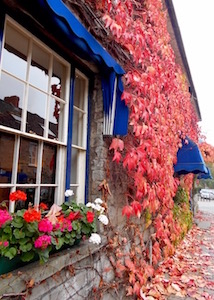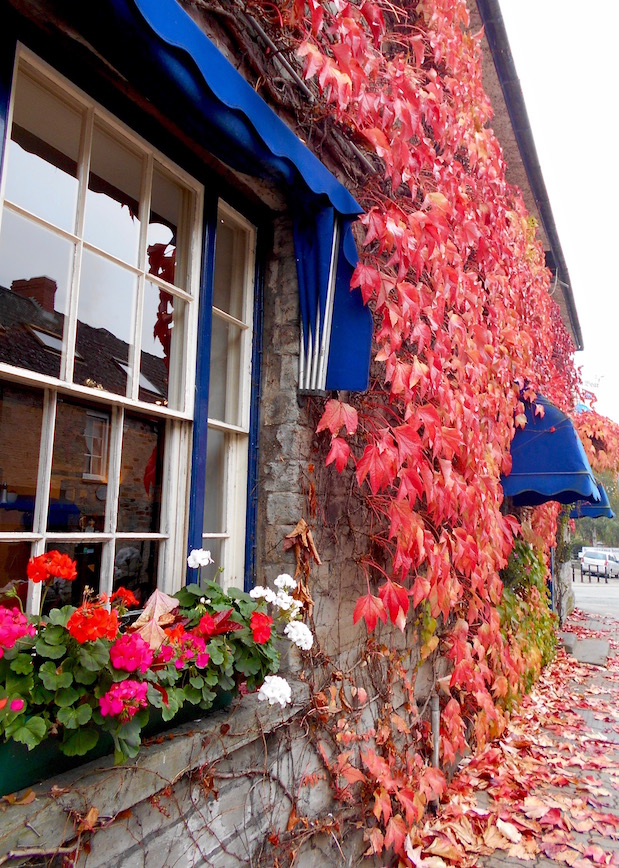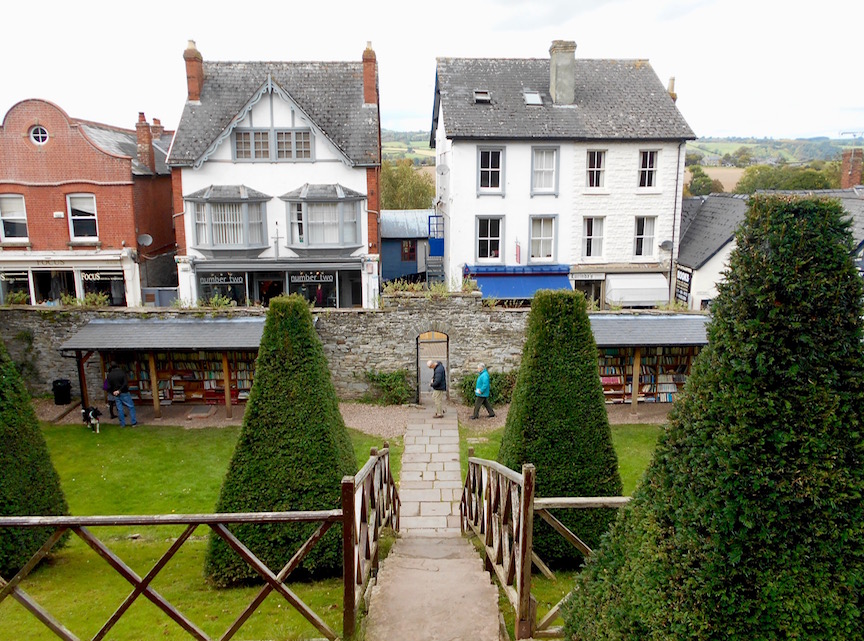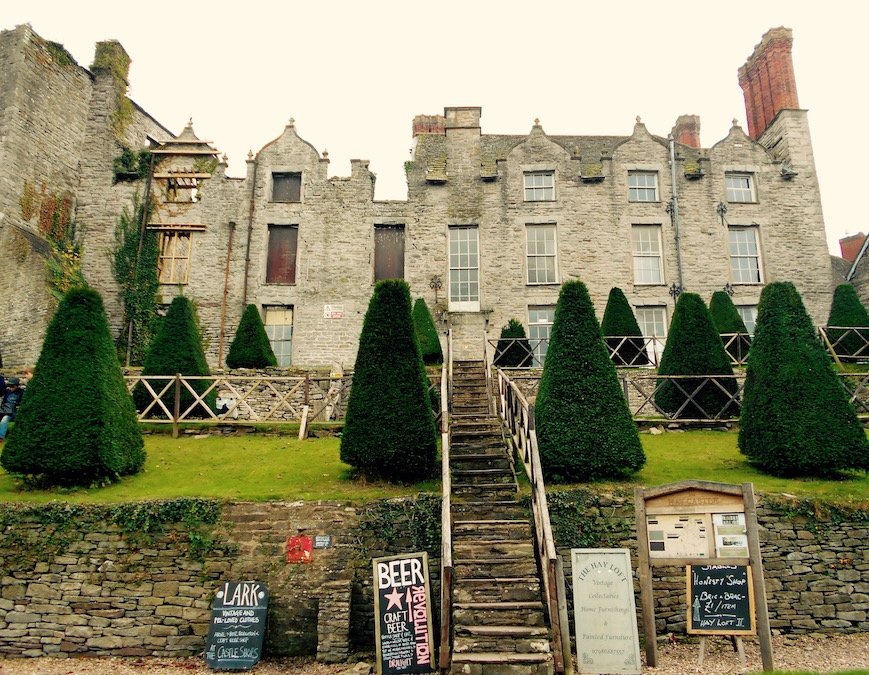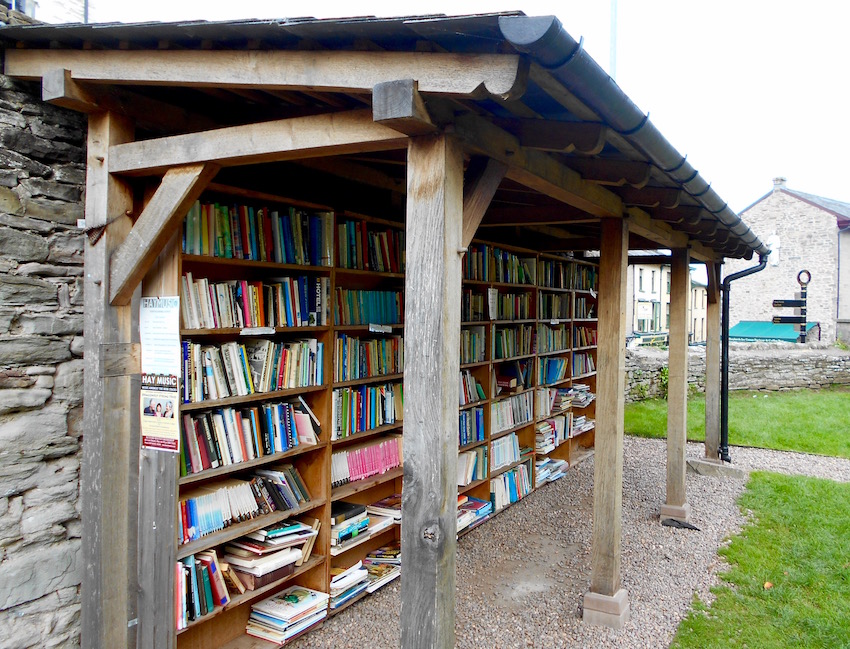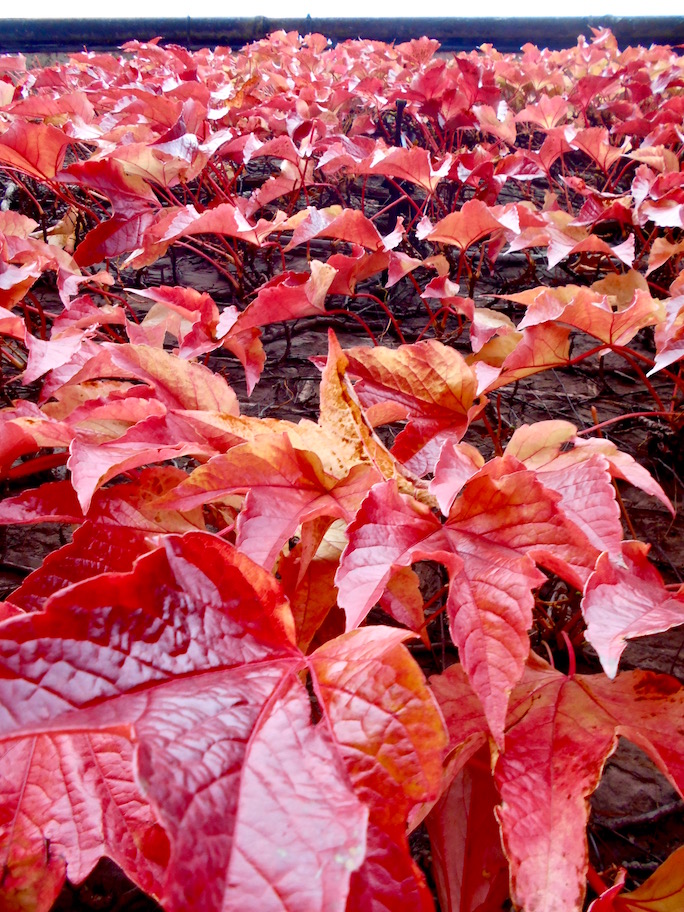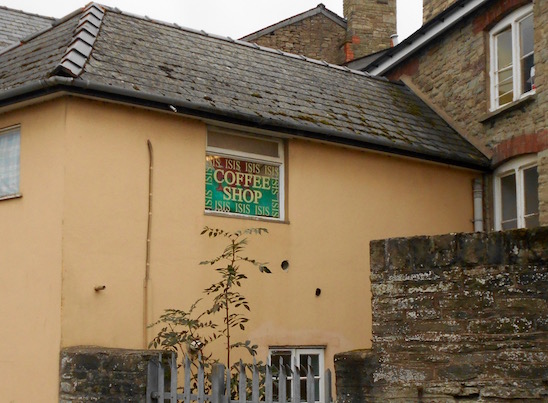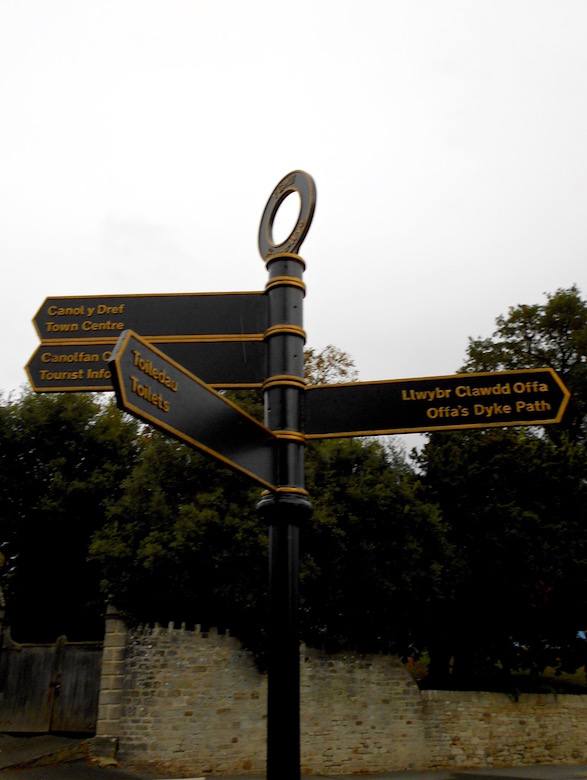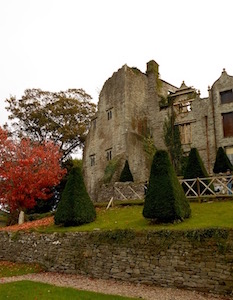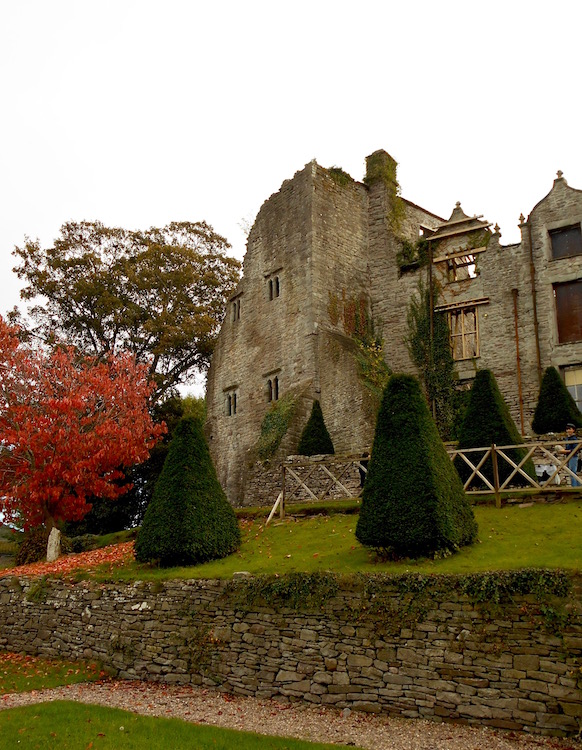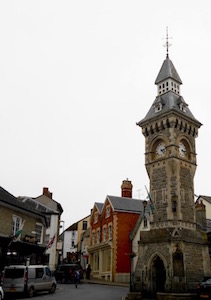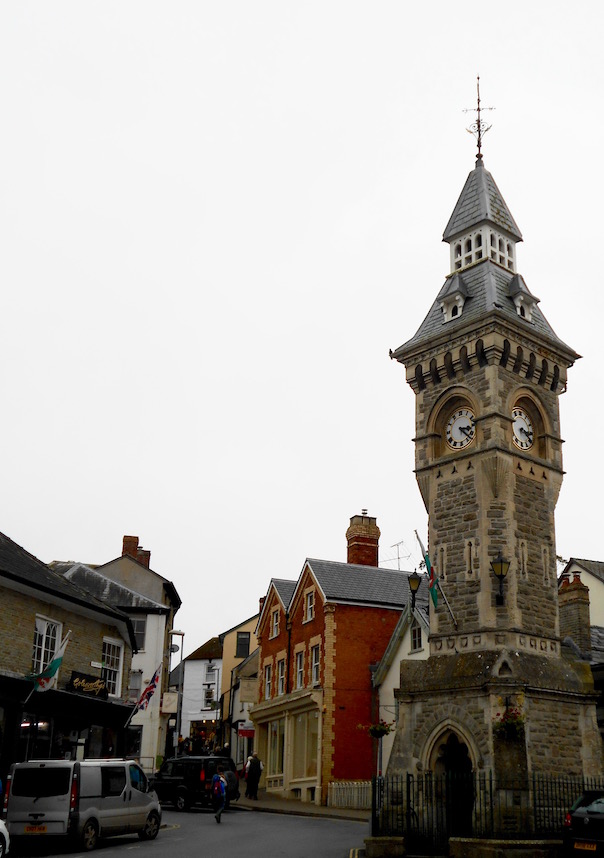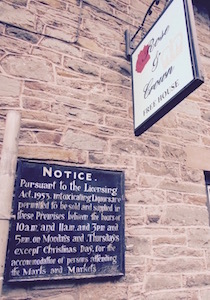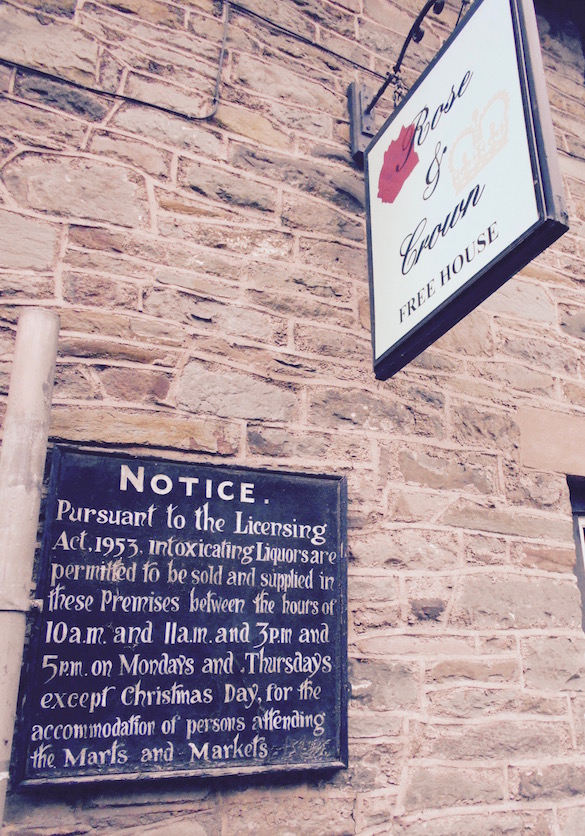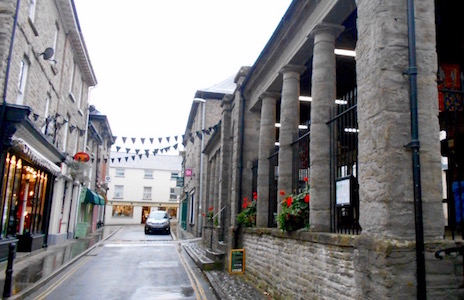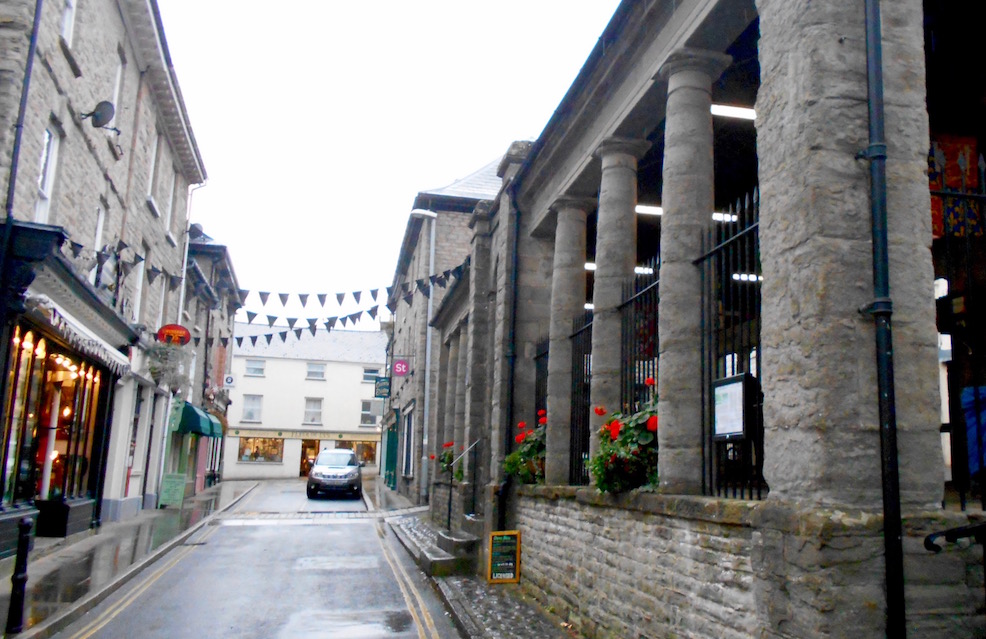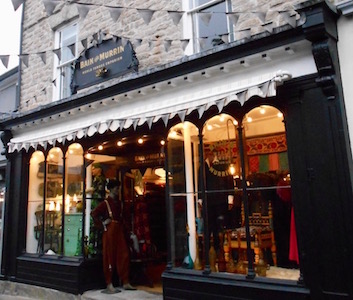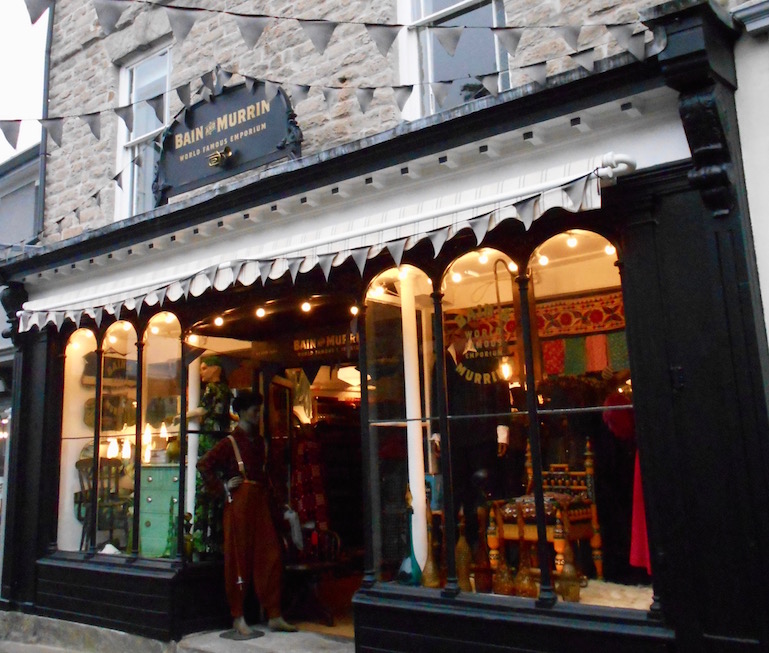October 15, 2016
You probably didn't realize it, but Wales is full of second-hand book shops - and some towns have more than others. I didn't realize it either - then one day, when P was deciding which school's offer to accept in the UK, I ran across a list of various festivals in Wales, and found something sometimes referred to as 'the Woodstock of the Mind'.
This wasn't, as I had hoped, a festival where we all sat around contemplating Roger Daltry as a shirtless young man playing Woodstock, as I've often done since I was 15. It was, however, the next best thing - Britain's leading literary gathering, in a Welsh town dedicated almost exclusively to second-hand bookstores (Caveat: I am at least 30 younger than Roger Daltry. That doesn't mean I couldn't appreciate him as a 15 year old. Give me a break, watch the movie Tommy sometime and tell me I'm wrong. Also, get me Elton John's boots while we're at it.)
If I remember right, P and I's conversation went something like this:
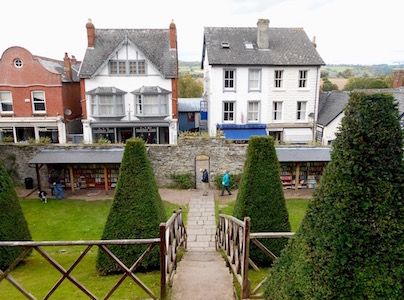
"Oh my god, P, there's a town in Wales that's dedicated solely to second hand bookstores."
"What? That's awesome. So I'm going to school in Wales?"
"Scotland be damned. Yes. Let's go to Wales."
This, of course, was a totally reasonable way of making a major life decision.
So, obviously, once we got settled in one of our first day trips was going to be to Hay-on-Wye, the town where a man named Richard Booth opened his first bookshop in 1961, and now has over thirty bookstores. Of course, being us, and (to be fair) being new to Wales, we failed to plan particularly well. First, we live on the (western) coast of northern Wales, whereas Hay-on-Wye is somewhere in the middle to south east, literally right on the (eastern) border with England.
("No worries", we said "we'll get up early and drive there!")
Failing to have gotten up particularly early, we ran into the second issue, that part of the beauty of this country is that it doesn't have straight, super-efficient highways. The main roads usually have space for two lanes (one going in each direction), but then there are the sharp curves around the mountains, and there are also the parts of the roads that only have space for one car, but are still two way roads.
("But it isn't that far," we said "it'll only take us an hour and a half!")
Two and a half hours later, we found ourselves driving through the town of Three Cocks. Testament to the fact of how badly I had to go to the bathroom, I don't have a picture of myself in front of the 'Three Cocks Inn', or any of the number of other landmarks of the tiny town next to Hay-on-Wye that I had been giggling about while pointing maniacally at Three Cocks on the map for the last two hours.
("When we get there," we said, "we'll just find a bathroom, have something quick to eat, and then go to a shop.")
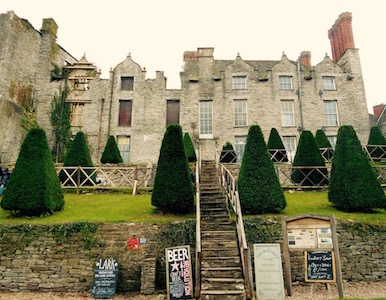
Arriving at around 1:30, we found we needed to pay to get into public bathrooms (from what I've come to expect in Wales, this is a total aberration. Possibly a travesty). We realized at that moment we of course didn't have any change at all for the bathroom turnstiles. As I was literally about to explode, we found a store close to the parking lot that sold used CD's, and bought two - a compilation of The Who songs, as well as a 'best of' selection from the Wagnerian opera 'Tristan und Isolde'. Since we had just bought a 2004 Ford with a radio that didn't pick up much (as we had only very recently learned while slowly driving secondary roads through Welsh mountains with the radio continuously on scan), we thought some 70s rock and German opera would come in handy eventually, as we'd failed to bring any non-digital music from the States.
("I'll just run to the bathroom" I said, "then we can look around.")
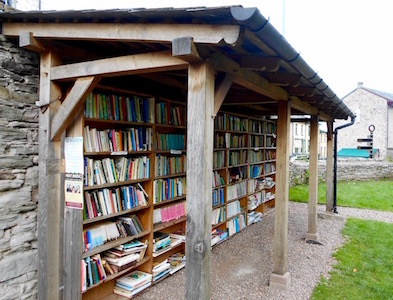
After several wrong turns, 'just taking a look' in the micro-brew store, and perusing a few outdoor shelves at the castle, at 2:30 we went into the first bookstore we could find. It was everything you could hope for in a second-hand bookstore. In other words, it was full of second-hand books, sold by a man who spoke only in whispers.
("These look good," we whispered "but we should take a look around, get something to eat, and maybe come back.")
Which is how we ended up in the antique map store. P and I quickly learned why we should not be allowed to go to antique map stores together. First of all, both of us are scared to touch anything. Second of all, we want to look at everything. Third, we are both shocked by anything more than about 50 years old. Combined, this quickly turns into a lot of wide-eyed pointing, urgent whispering, and furtively looking around at the owner to see if we're going to get into trouble for looking at the things the owner clearly wants us to look at so she can sell them to us. We ended up with a 1920s Ordinance Survey hiking map of where we live in northern Wales, and also an engraving of the northern Cambrian coast that's older than the United States, neither of which I feel like I should own because, like Indiana Jones, I righteously believe everything old should be in a museum.
("I think it's going to rain," P said "we should probably get inside and eat so these maps don't get wet. Also I'm starving.")
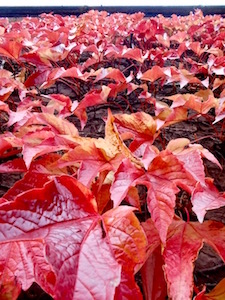
After mistakenly walking into two places that didn't actually serve food, and into one vegetarian place where we walked out saying 'Tibetan Nut Loaf?' to each other, forty five minutes later we found a lovely pub called the Blue Boar that served food all afternoon (rather than just until 2:30 or 3:00 as per usual). There I found not only the most startlingly red foliage of a climbing plant I've ever seen on the facade, but I also ate one of the best beef stews I've ever had. Don't get me wrong, it probably didn't hold a candle to whatever the Tibetan Nut Loaf was in the other place, but oh my goodness - the fall off the bone meat that went amazingly with the English mustard, and the vegetables were ridiculously fresh.
("Oh my goodness," I said "I had my face in that stew for so long I wasn't even paying attention to what time it was. It's almost 4:30 and except for the one in the cinema, these stores definitely close at 5.")
Wiping drops of stew off my face, and thanking the gods of Welsh pubs that you pay for meals up front rather than waiting for the bill afterwards, we ran back to the one bookshop we'd been to. I bought my copy of Dr. Zhivago and we made some joke that made the shopkeeper laugh in the quietest giggle I've ever heard. Of course, in the interim we'd been distracted by discovering the shop's combined IRA and Egyptology section upstairs, and on walking out, it hit 5:00.
("Huh," we said "when they say they close at 5, they mean they close at 5. Also, does that sign say 'ISIS Coffeeshop'? That's unfortunate.")
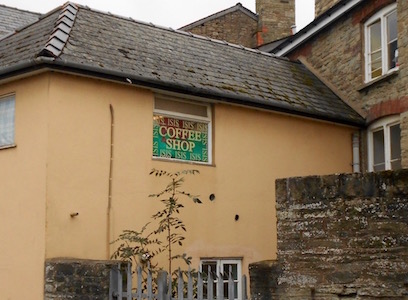
Not wanting to give Russia a justification for bombing a Welsh coffeeshop by investigating this further, we moved on to the Cinema Bookshop, which is much larger and has later hours than most of the other bookshops in town. Wandering around, I found uncomfortable British missionary diaries from Rhodesia, Art Nouveau compendiums translated from French, and seemingly every book that was ever written about Ernest Hemingway (although I was looking for, and not finding, anything written by Ernest Hemingway). There was a lot more to find here, but given our failure to actually leave enough time to browse, we creakingly wandered the aisles for only an hour or so, and I walked out with La Morte DArthur and Ursula K. LeGuin's fourth book of the Wizard of Earthsea series - Tehanu, which I hadn't even realized existed.
However, even the joy of finding a female fantasy writer's coup-de-grace thumb-your-nose at society's work for a few dollars paled in comparison to the discovery of a 1938 Ward Lock & Co.'s Aberystwyth and North Wales (Southern Section) Illustrated Guide Book. Don't get me wrong, the 40-odd pages that the current Rough Guide devotes to the area are quaint - but I do think I'm going to thoroughly enjoy using this 200+ page pre-war book with hand-drawn maps as my authoritative guide to the area I currently live in. Also I am thinking of mail-ordering some of Dr. J. Collis Browne's Chlorodyne, as according to it's catchy slogan 'It would be difficult to name a more complete or reliable medicine to keep at hand under all climatic conditions' (I've since learned chlorodyne was a mixture of a form of opium, cannabis and chloroform, so... yes), and I may also send a telegram to the Standard Bank of South Africa, Ltd, to ask about investing in Northern (and southern!) Rhodesia.
("Hey, this place is closing too" we said "we should get going, though I'm sure if we drive the other way back will be quicker.")
So, popping in our newly purchased 'Best of Tristan und Isolde' cd, we made our way… east. Because the 'other way' home involved driving into England before driving back to Wales. Ultimately, being able to tell whether this way back to Gwynedd was quicker or not was hampered by three self-created problems.
("This is a wooden bridge," I screamed "This is a freaking wooden bridge! It's going to collapse, I'm telling you, it's only for pedestrians!")
First, we thought it would be fine to take what the map told us was a toll road back into England. Toll road is apparently a British English term for potentially pre-18th century wooden bridge that if it were in New Hampshire would be the centerpiece of a booming maple syrup candy business, but under no circumstances would you be allowed to drive over it. Basically you pay someone a pound to cross from Wales to England while certain you are going to collapse a historically significant bridge.
("Hey, it's just about dusk, you know what that means?" I asked 45 minutes later "It means what better time to go find some druid standing stones in a farmer's field off the highway, am I right?")
Second, sometimes I have terrible ideas. These usually happen when I have a very zoomed out paper map in my hand, and it has a marking on it I don't fully understand (which consequently is why I absolutely love paper maps). In this case 'The Four Stones' was clearly marked just north of the A44, off of a tertiary (quartiary?) farm road connecting two villages. Given that even the primary and secondary roads are rarely well lit here, the tertiary, single lane hedge-rowed track was already well sunk into darkness even as we arrived at sundown. Oddly enough, this made it particularly hard to find said standing stones by sight, and we had nothing to guide us besides the words 'The Four Stones'. After 15 minutes driving north and peering into the darkness we gave up and turned around.
In a last ditch effort I told P to stop the car, get out, and look down the left hand side of what I thought was a promising field. Getting out, looking, shaking his head no, and getting back to the car, we started to drive back toward the highway, when I saw the Four Stones. Unfortunately for P, they were right where I'd just told him to look. Sighing as only someone who has to spend another two hours in a car with someone telling them they weren't looking close enough can sigh, he stopped the car, and we peered through the hedgerow, into the dark, at the vaguely visible outline of four Standing Stones, put up a long time ago for some unknown purpose.
("Oh my god!" P yelled 45 minutes later "I swear this cd is perfectly timed to scare the crap out of me.")
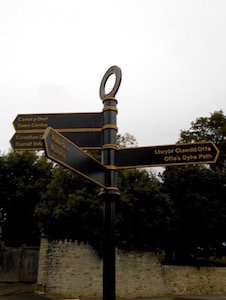
Thirdly, as it turns out, 'The Best of Tristan und Isolde' is not the cd for a relaxing drive home. While a magnificent Wagnerian opera, it does, as such, consist at times of a series of phrases being sung in over-emphatic and shockingly loud German. (Also, being as it was written by Wagner, it is potentially super-racist - as I don't speak German, I'm going to just hope this isn't the case, but Wagner being Wagner…) In any case, listening to it while driving the unlit curvy mountain roads through forests and small villages of Wales is something like walking alone down a silent, dimly lit street of massive, narrowly spaced Tudor houses, creakily leaning together over your head, and suddenly having a giant blonde woman wearing a gold-horned helmet jump out from behind a telephone box and screaming 'Tristan!!!' directly into your face. Also, somehow this kept happening every time the road turned unexpectedly into a one lane, went over a tiny bridge with no sidewalk, or whenever a giant tractor trailer would pass us around a blind corner.
Only too happy to reach Machynlleth and again get radio reception, we then were treated to a BBC radio documentary on the Singer company, including a seriously distressing and graphic recounting of the New York Triangle Shirt Factory fire. I finally learned my lesson and turned the radio off.
While the soundtrack could use some work - as could our planning skills - the trip to Hay-on-Wye was overall wonderful. I'll definitely be going back - whether as part of another drive there (preferably with an overnight stay), or as a stop off on the Offa's Dike path. In any case I know where I'll be getting my beef stew - although I don't know if it will carry well in a backpack.

